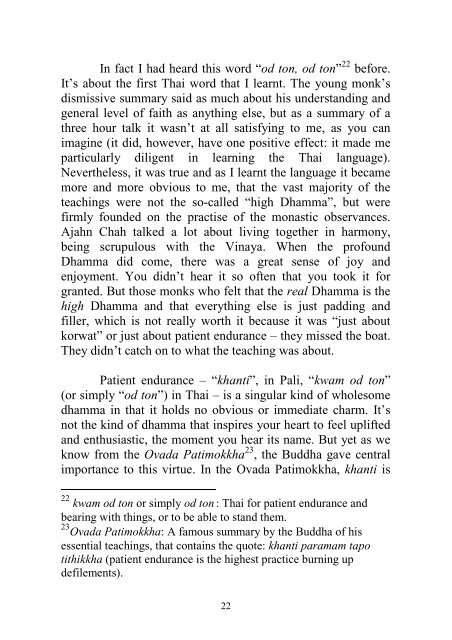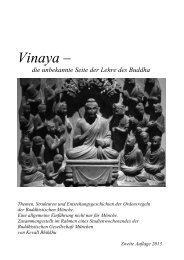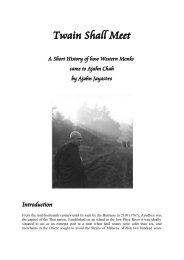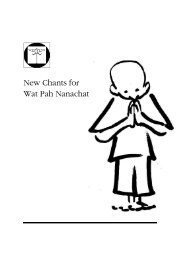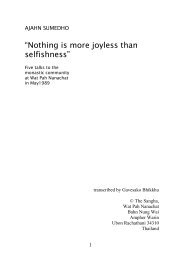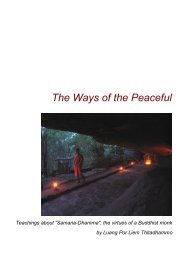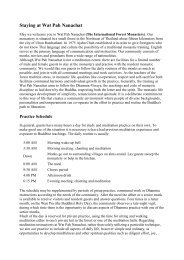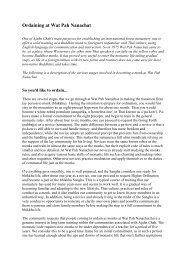Khanti - Wat Pah Nanachat
Khanti - Wat Pah Nanachat
Khanti - Wat Pah Nanachat
Create successful ePaper yourself
Turn your PDF publications into a flip-book with our unique Google optimized e-Paper software.
In fact I had heard this word “od ton, od ton” 22 before.<br />
It’s about the first Thai word that I learnt. The young monk’s<br />
dismissive summary said as much about his understanding and<br />
general level of faith as anything else, but as a summary of a<br />
three hour talk it wasn’t at all satisfying to me, as you can<br />
imagine (it did, however, have one positive effect: it made me<br />
particularly diligent in learning the Thai language).<br />
Nevertheless, it was true and as I learnt the language it became<br />
more and more obvious to me, that the vast majority of the<br />
teachings were not the so-called “high Dhamma”, but were<br />
firmly founded on the practise of the monastic observances.<br />
Ajahn Chah talked a lot about living together in harmony,<br />
being scrupulous with the Vinaya. When the profound<br />
Dhamma did come, there was a great sense of joy and<br />
enjoyment. You didn’t hear it so often that you took it for<br />
granted. But those monks who felt that the real Dhamma is the<br />
high Dhamma and that everything else is just padding and<br />
filler, which is not really worth it because it was “just about<br />
korwat” or just about patient endurance – they missed the boat.<br />
They didn’t catch on to what the teaching was about.<br />
Patient endurance – “khanti”, in Pali, “kwam od ton”<br />
(or simply “od ton”) in Thai – is a singular kind of wholesome<br />
dhamma in that it holds no obvious or immediate charm. It’s<br />
not the kind of dhamma that inspires your heart to feel uplifted<br />
and enthusiastic, the moment you hear its name. But yet as we<br />
know from the Ovada Patimokkha 23 , the Buddha gave central<br />
importance to this virtue. In the Ovada Patimokkha, khanti is<br />
22 kwam od ton or simply od ton : Thai for patient endurance and<br />
bearing with things, or to be able to stand them.<br />
23 Ovada Patimokkha: A famous summary by the Buddha of his<br />
essential teachings, that contains the quote: khanti paramam tapo<br />
tithikkha (patient endurance is the highest practice burning up<br />
defilements).<br />
22


